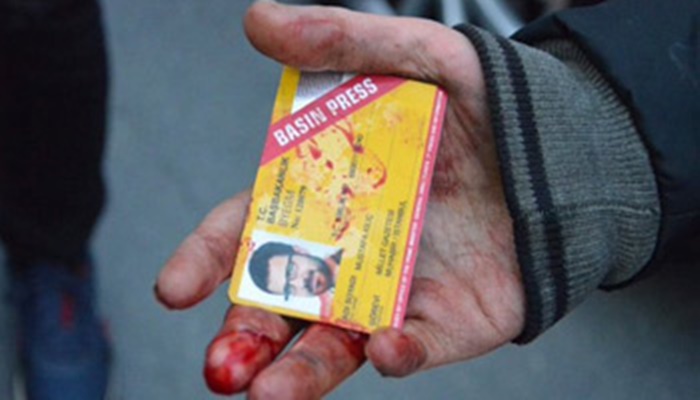Although infringements on freedom of the media and the arbitrary imprisonment of scores of Turkish journalists have been widely reported and criticized worldwide in recent months, a similar situation is now affecting foreign journalists working in Turkey in that they are encountering difficulties in acquiring press accreditation from the government.
According to a report on the Birgün daily website, the work of foreign correspondents in Turkey is now being reviewed by the authorities for evidence of criticism of the ruling Justice and Development Party (AKP) government.
Birgün claims that long-established accreditation procedures are being delayed and wielded as a threat against foreign press members, causing problems for them in doing their jobs and leading to the possibility of self-censorship.
Foreign news organizations affected by this situation are planning to ask their embassies in Turkey to address the issue with the authorities, and German Chancellor Angela Merkel is also expected to raise the problems of numerous German media outlets during an upcoming visit to Turkey.
Journalists’ Union of Turkey President Gökhan Durmuş told Birgün that “the accreditation process being used by officials as a political tool cannot be tolerated” and expressed solidarity with foreign media members experiencing accreditation problems in Turkey.
As part of the ongoing media crackdown in Turkey, New York Times reporter Rod Nordland was denied entry to the country in January with no reason offered by officials.
A total of 191 journalists are currently behind bars in Turkey on charges of alleged terrorism and links to a failed coup on July 15, 2016, according to the findings of the Stockholm Center for Freedom (SCF).
In the last days of 2016, Wall Street Journal correspondent in İstanbul Don Nissenbaum was held incommunicado for over two days for tweeting about an alleged soldier burning by the Islamic State in Iraq and the Levant (ISIL).
Turkey has shut down nearly 200 media outlets as part of the post-coup purge.
Over 10,000 people are currently under investigation for their social media posts.
Pressure on foreign journalists in Turkey has been mounting in recent years, with the government, pro-government journalists and government trolls on social media directly targeting them.
Journalists Frank Nordhausen and Nick Ashdown were targeted by pro-government trolls and media for their tweets reporting on twin bomb attacks in İstanbul immediately after they occurred on Dec. 10.
A campaign on social media was launched by a troll with more than 134,000 followers, @ustakiloyunlari, who wrote, “These journalists, like agents, were aware of the attacks,” with a photoshopped picture showing the time of the journalists’ tweets after the blasts.
“#Turkey – Because I reported the Istanbul blast yesterday on Twitter I am now the aim of a terrible shitstorm by Turkish nationalists,” said Nordhausen in response to the campaign.
Ashdown tried to inform Twitter about the campaign, writing: “Dear @twitter, this account is accusing foreign journalists in Turkey of being agents, resulting in threats from his many followers.”
“Shameless, immoral, treason,” said President Recep Tayyip Erdoğan of an article by New York Times reporter Ceylan Yeginsu about the recruitment of Turkish citizens by ISIL.
After CNN’s Ivan Watson was detained during a live broadcast from the Gezi Park protests in Istanbul in 2013, Erdoğan accused him of “working like a spy.”
Erdoğan also went after the Economist’s Turkey correspondent, Amberin Zaman, for her remarks on a TV show: “Shameless militant disguised under the name of a journalist.”
Selin Girit, a host on the BBC’s Turkish service, was another journalist targeted by Erdoğan, who said, “Part of a conspiracy against her own country.”
Turkish Interior Minister Süleyman Soylu attacked French journalist Olivier Bertrand, who was deported by Turkey in November after three days of detention, saying he was sent to Turkey to stir up unrest on the Syrian border.
Two Swedish journalists were also temporarily detained by police in November in the Kurdish southeastern province of Diyarkabır.
Lindsey Snell, an American freelance journalist detained by Turkish security forces on Aug. 7 as she crossed into Turkey from Syria and accused of having illegally entered a restricted military zone, was released in October after two months’ detention in Turkey.
Finnish journalist and writer Taina Niemela was deported from Turkey in April on charges that she had been involved in “spying activities.”



